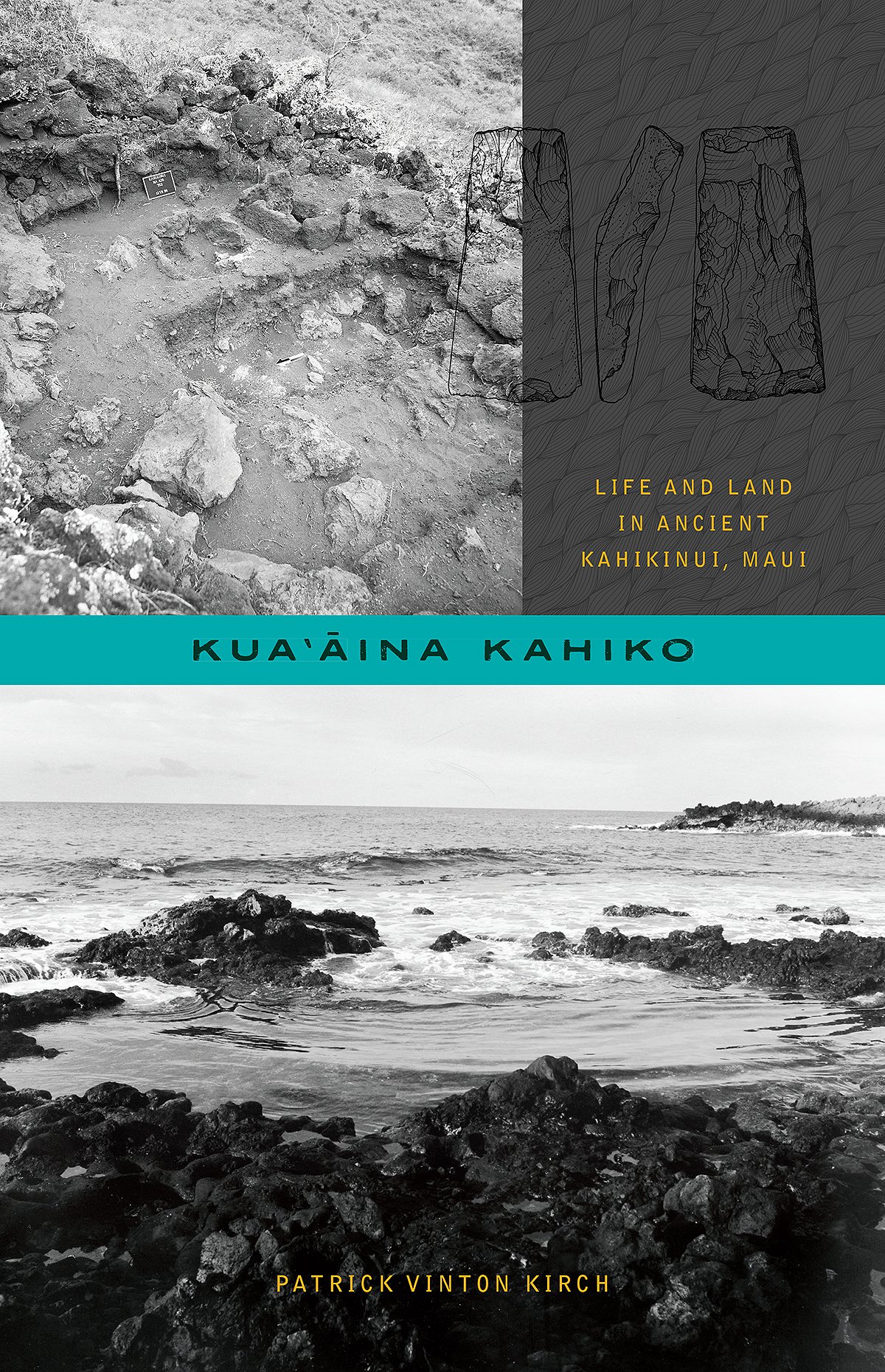 Kahikinui, on the southeastern slopes of Maui’s Haleakala, remains one of the last places in the Hawaiian Islands where the landscape of an entire moku (district) is preserved intact. Despite Kahikinui’s being an `āina malo`o or arid land, lying in the rain shadow of Haleakala, the ancient Hawaiians living there successfully adapted their farming techniques for growing sweet potato and dryland taro, eventually supporting a population of several thousand people. The prehistory of Kahikinui reveals in exquisite detail the patterns of ancient Hawaiian life across an entire district, from sea to uplands. Drawing on seventeen years of research on thousands of house sites, heiau, agricultural fields, and other vestiges of ancient life, kama`āina archaeologist Dr. Patrick Kirch (University of California, Berkeley) traces the little-known history of Kahikinui from the first arrival of Polynesians in the eleventh century A.D. to its final abandonment at the end of the 1800s … including the saga of Ka `Ohana o Kahikinui, a grass-roots group of Native Hawaiians who successfully struggled to regain access to these Hawaiian lands. Copies of the recently published The Land of La`amaikahiki will be available for purchase and Dr. Kirch will be happy to inscribe them.
Kahikinui, on the southeastern slopes of Maui’s Haleakala, remains one of the last places in the Hawaiian Islands where the landscape of an entire moku (district) is preserved intact. Despite Kahikinui’s being an `āina malo`o or arid land, lying in the rain shadow of Haleakala, the ancient Hawaiians living there successfully adapted their farming techniques for growing sweet potato and dryland taro, eventually supporting a population of several thousand people. The prehistory of Kahikinui reveals in exquisite detail the patterns of ancient Hawaiian life across an entire district, from sea to uplands. Drawing on seventeen years of research on thousands of house sites, heiau, agricultural fields, and other vestiges of ancient life, kama`āina archaeologist Dr. Patrick Kirch (University of California, Berkeley) traces the little-known history of Kahikinui from the first arrival of Polynesians in the eleventh century A.D. to its final abandonment at the end of the 1800s … including the saga of Ka `Ohana o Kahikinui, a grass-roots group of Native Hawaiians who successfully struggled to regain access to these Hawaiian lands. Copies of the recently published The Land of La`amaikahiki will be available for purchase and Dr. Kirch will be happy to inscribe them.
The Land of La`amaikahiki: Ancient Hawaiian Life in the Kua`āina of Kahikinui, Maui
August 28, 2014 by
Add to Calendar
When:
October 14, 2014 @ 5:00 am – 6:30 am
2014-10-14T05:00:00+00:00
2014-10-14T06:30:00+00:00
Cost:
$3; free to Lyman Museum members
